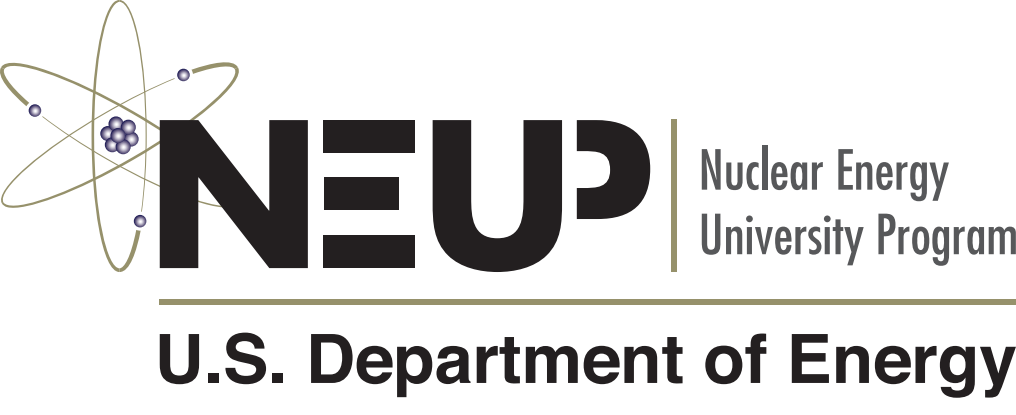FY 2014 Integrated Research Projects Awards
The U.S. Department of Energy has announced $20 million in funding for five university-led research teams, one research team for each of the following areas: 1) Transient test instrumentation; 2) Sensors and delivery devices for dry storage of used nuclear fuel; and, 3) FHD/Vacuum Drying of used nuclear fuel. Two research teams have been awarded in the following workscope area: Integrated approaches to Fluoride High Temperature Reactor (FHR) technology and design challenges. The Department is engaging universities in the effort to find solutions through NEUP's Integrated Research Projects (IRP). IRP award recipients are listed below.
|
Title |
Institution
|
Funding Amount* |
Project Description |
Integrated FHR Technology Development: Tritium Management, Materials Testing, Salt Chemistry Control, Thermal-Hydraulics and Neutronics with Associated Benchmarking | Massachusetts Institute of Technology | $5,000,000 | Four FHR challenges will be addressed. Tritium absorption by carbon (fuel/reflector) will be measured and modeled. Salt redox control strategies and materials tests will be conducted in the laboratory and the MIT reactor. The UCB thermal-hydraulics Compact Integral Effects Test (CIET) facility will perform integral effects tests. This and other data will be used for a series of code benchmarking and validation workshops in neutronics, thermal hydraulics, and materials/coolant/tritium modeling. |
Integrated Approach to Fluoride High Temperature Reactor (FHR) Technology and Licensing Challenges | Georgia Institute of Technology | $4,999,989 | This project advances FHR technology via integrated approach by addressing key related gaps: tritium management; liquid salt coolant impurity removal and redox and corrosion control; advanced instrumentation; qualification of structural alloys; novel heat exchangers; and, V&V of neutronics and thermal hydraulics tools in support of licensing. The outcomes reduce technical uncertainties and facilitate commercialization of Fluoride High Temperature Reactors, with a broader impact of supporting development of other advanced reactors. |
Multi-Sensor Inspection and Robotic Systems for Dry Storage Casks | Pennsylvania State University | $3,000,000 | A robotic device and new sensor systems to monitor for conditions conducive to stress corrosion cracking and inspect for deterioration and cracks within dry storage casks for used nuclear fuel will be researched. Based on this research a prototype system will be developed and demonstrated on a mock-up dry storage system. The robotic device will be designed specifically to provide access to the canister surface through the ventilation system of the concrete overpack. |
Experimental Determination and Modeling of Used Fuel Drying by Vacuum and Gas Circulation for Dry Cask Storage | University of South Carolina | $4,000,000 | Experiments will determine the amount, form, and location of water remaining in dry casks. A full length mock fuel assembly with heater rods will be employed in these full scale experiments. Combined and separate effects tests will be conducted involving intact rods, failed rods, a BWR water rod, a PWR guide thimble, porous neutron absorber materials, spacer disks, etc. Correlations will be developed for inclusion in multiphysics codes and industry/regulatory codes, TRACE and COBRA-SFS. |
Advanced Instrumentation for Transient Reactor Testing | University of Wisconsin, Madison | $3,000,000 | This Advanced Instrumentation for Transient Reactor Testing IRP focuses on: development of innovations for hodoscope imaging for a transient test using advancements in detection and image resolution; development of novel sensors for conductivity and temperatures of fuel rods and local measurements of neutron fast and thermal flux; out-of-pile and in-pile testing with these sensors under common transient test protocols; and design of transient standard test with our instrumentation. |
|
Total |
$19,999,989 | |
*Actual project funding will be established during contract negotiation phase.

